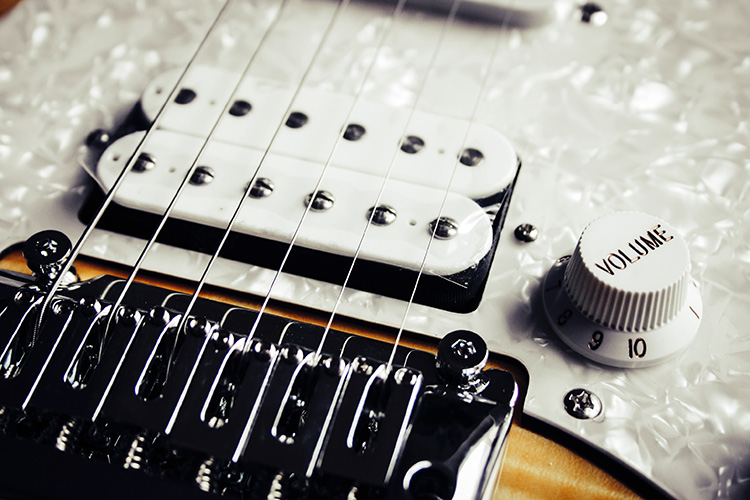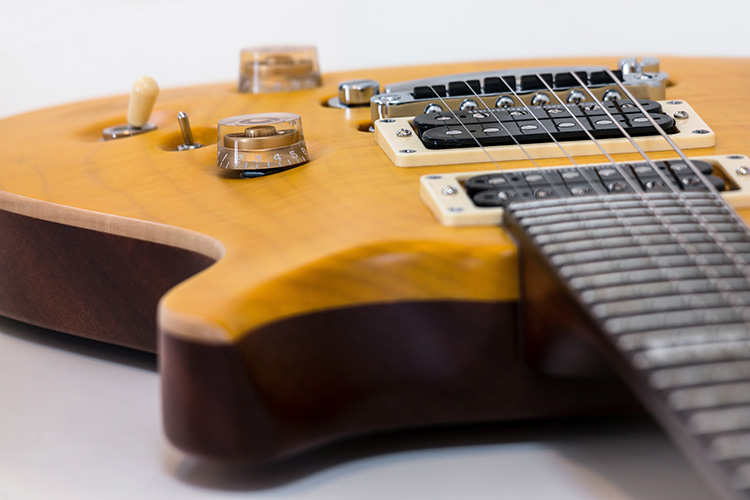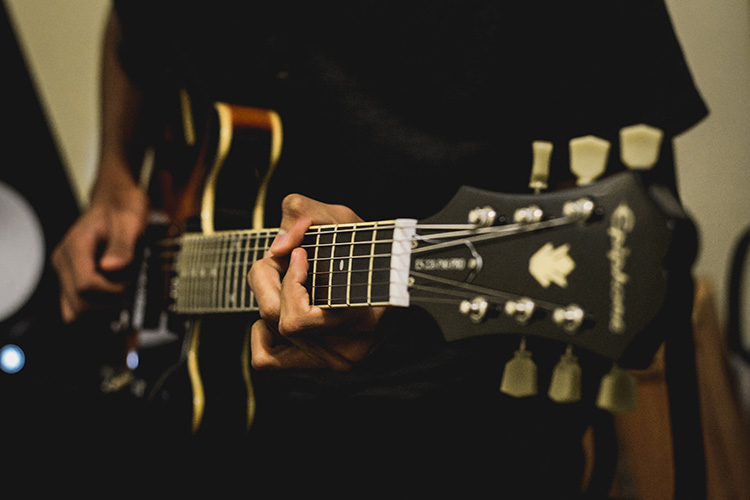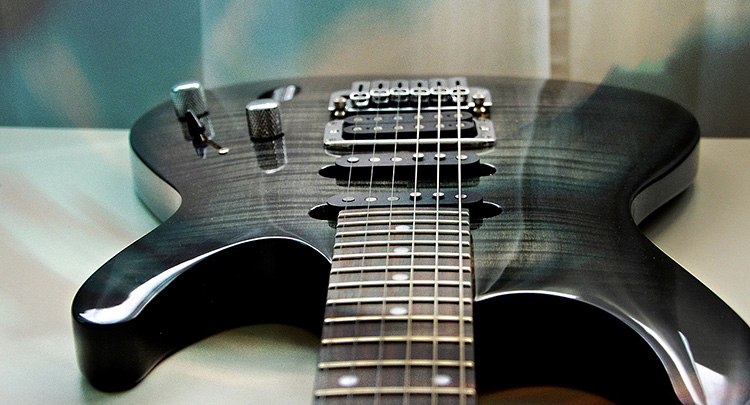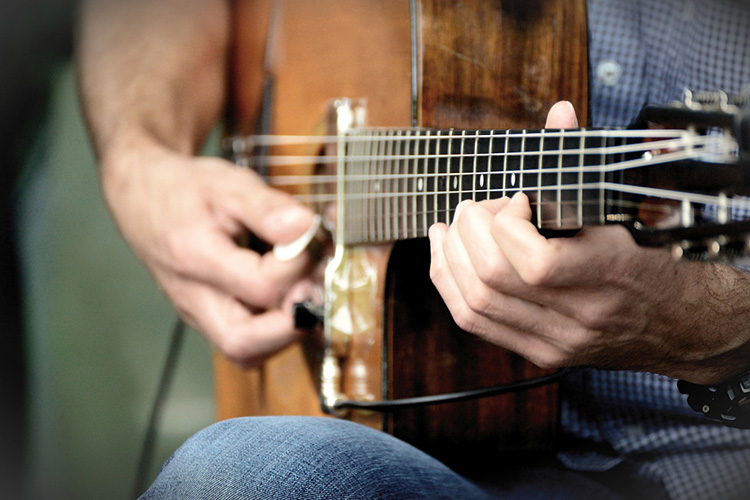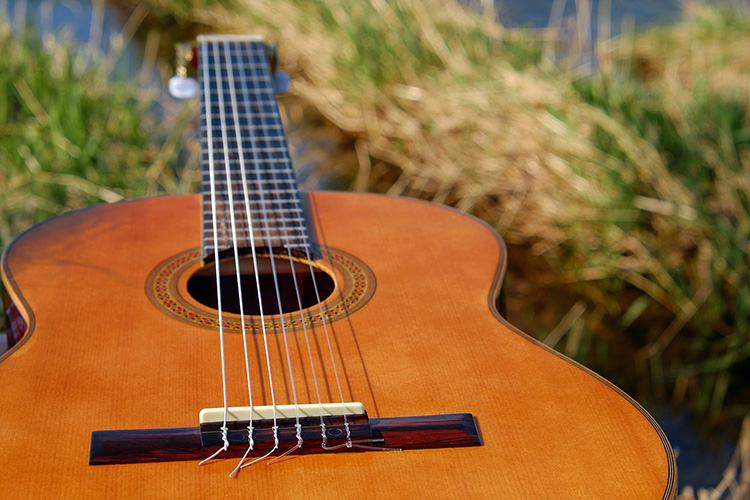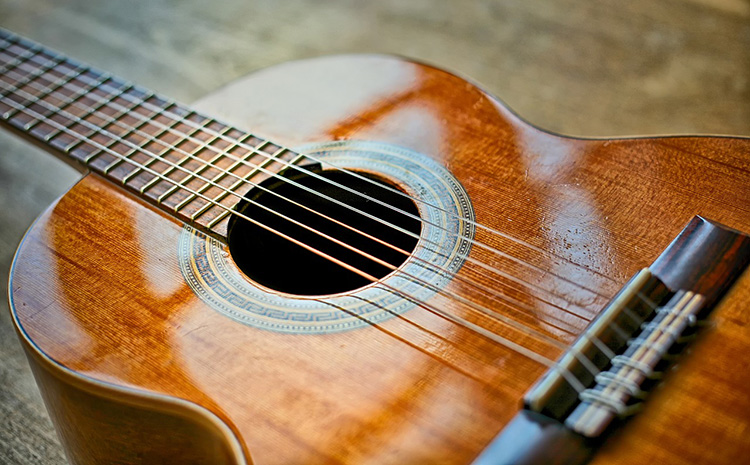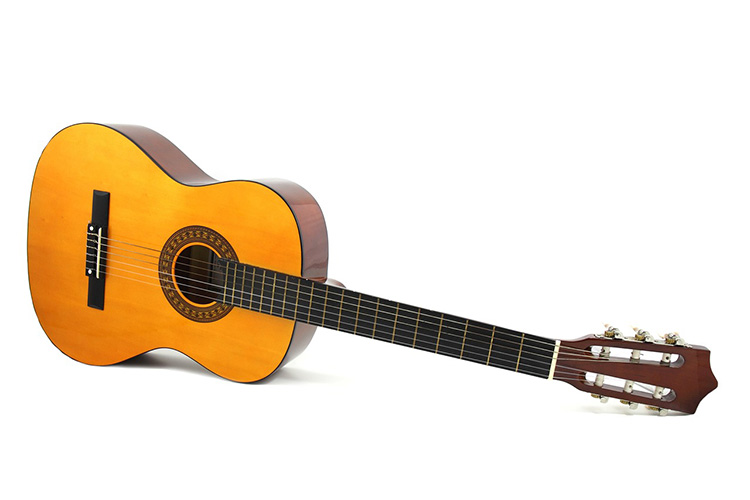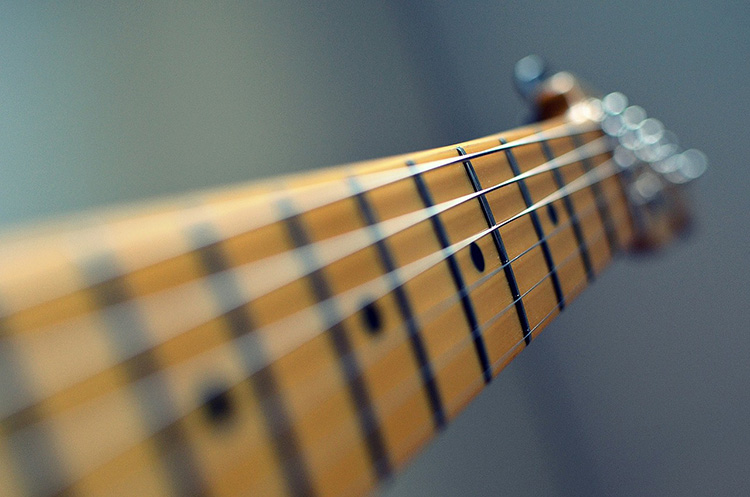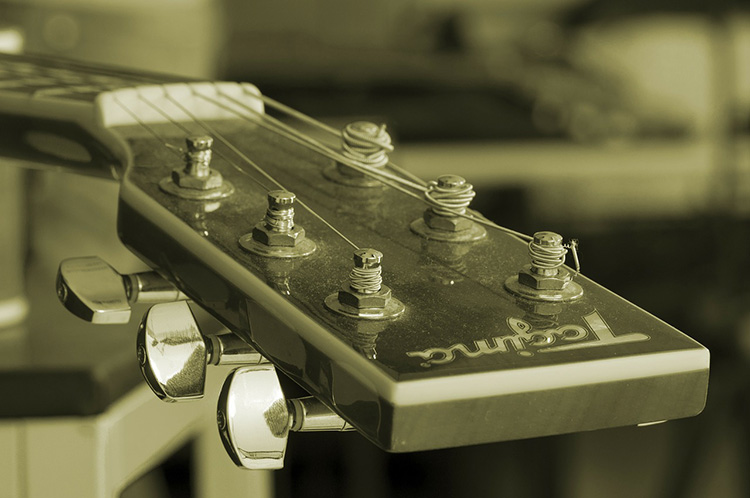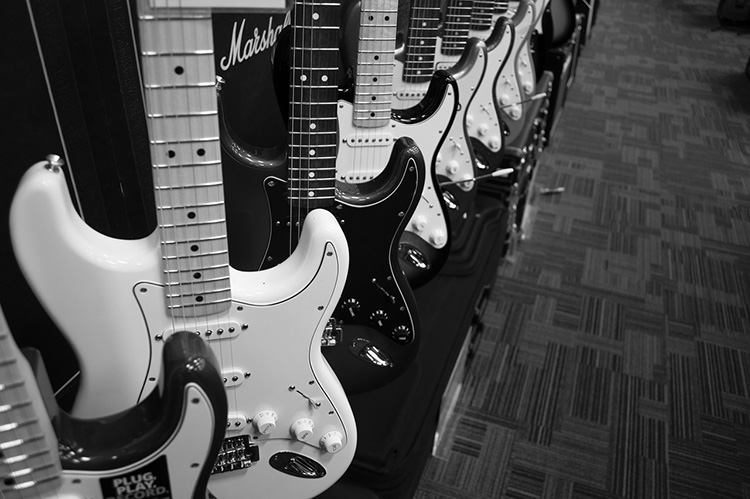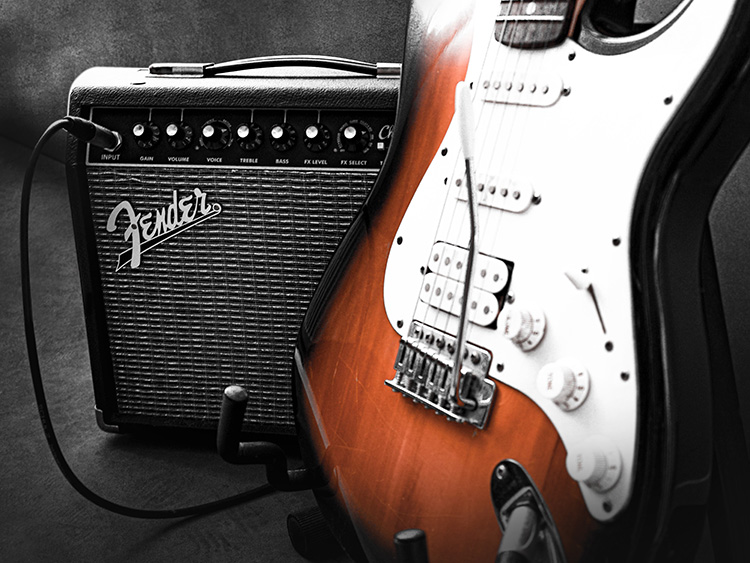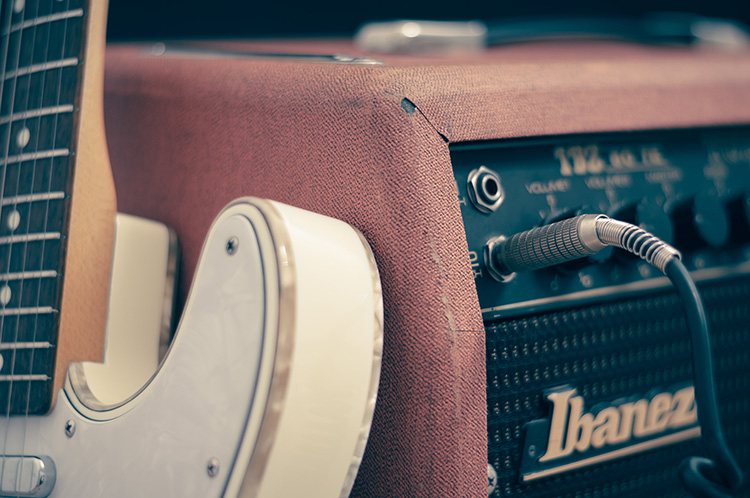Types of guitar strings are often tricky to understand, this can be confusing and overwhelming for guitarists. In this ultimate guide we’re going to show you everything you need to know about guitar strings.
Over 100,000 guitar-learners get our world-class guitar tips & tutorials sent straight to their inbox:
Click here to join them
Get our best guitar tips & videos
In this free lesson you will learn:
- 6 essential secrets about every type of guitar string.
- How to find the perfect string type that will make everything easier for you as a guitarist.
- 3 essential tone tips that are guaranteed to make your guitars sound amazing.
Types of Guitar Strings – What’s Out There?
Our choices in guitar strings can have a major impact on our playing comfort, as well as our guitar tone.
While old and worn out strings can often lose their brightness and tone, keeping up on your guitar maintenance can make a world of a difference for your instrument, your skill development, and most importantly – your hands.
- By understanding the differences between the types of guitar strings we have the ability to make well-informed buying decisions.
- This will help improve our playing, and prevent the risk of unnecessary damage and repairs.
Although finding the right strings for your guitar should be a personalized process, we’re here to help you better understand your options.
In this article we’re going to look at the different types of guitar strings available to us, as well as the most ideal scenarios for different string gauges.
Let’s go!
Types of Guitar Strings – Gauges
The term ‘string gauge’ refers to the size of the string in diameter.
- When we buy a pack of guitar strings, the heaviest and lightest gauges will be displayed on the packaging. For example, ‘10-46’.
- String gauges are measured in 1/1000th of an inch.
- Therefore, a 46-gauge guitar string (typically a low E) would be 0.052 inches in diameter.
Naturally, guitar strings with a lower gauge will be lighter than a string with a higher gauge.
Guitar strings come in all sorts of string gauge varieties, which can introduce a whole world of different guitar pairings and tones.
While different guitar strings can pair better with some guitars than others, a lot of that distinction is up to you as a guitarist and player.
For starters, there are a view basic principles we can observe with different types of guitar strings:
#1 Lighter strings will typically be easier to play, but may also be too easy to play.
Although these types of strings are great for the beginner guitarist, they don’t give us a lot of stability with techniques such as bending and vibrato.
#2 Medium gauge strings are great for rock-hard stability
They provide a good amount of push against our fingers and allow us to dig in without losing control.
#3 Heavy and extra-heavy gauge strings are for the guitarist who attacks their guitar with their pick.
Often favored by punk, metal and funk musicians, this gauge of string will fight back when played.
This is a great choice for the advanced and confident guitarist who wants that extra bit of punch in their tone.
Learn 12 EASY beginner chords with our popular guide
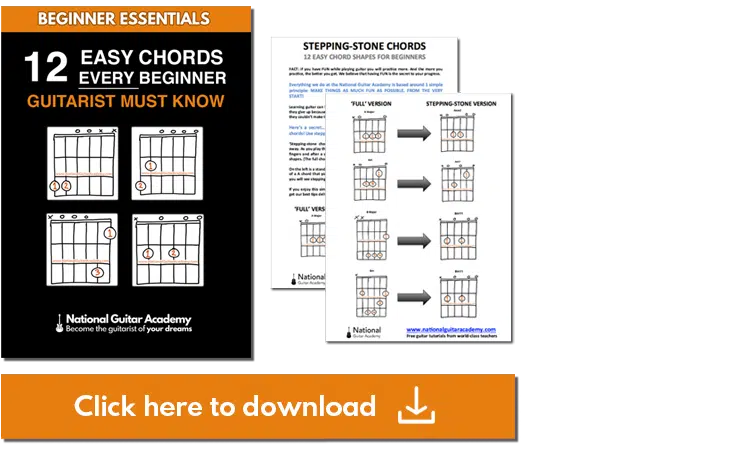
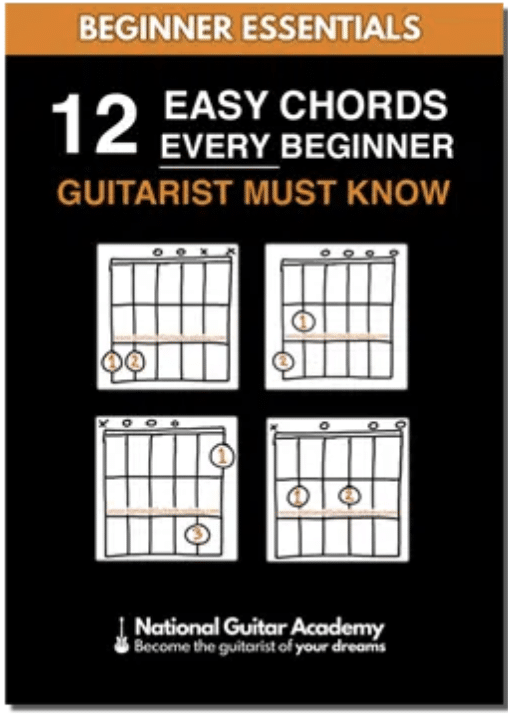
Where should we send it?
✅ Stop struggling. Start making music.
✅ Learn beginner-friendly versions of every chord.
This is our most popular guide and it will improve your chord ability quickly! 😎
Get your own personalised guitar-learning plan 🎸
Get a custom guitar-learning plan here: Click here for GuitarMetrics™
World-Class Guitar Courses 🌎
Learn from the world's best guitar educators: Click here for our guitar courses
Types of Guitar Strings – Electric Guitar Strings
These types of guitar strings are most often made from one of three different materials.
#1 Nickel Plated Steel Guitar Strings
- The most common choice due to its warmth and brightness.
- Can sustain heavy pick attack with ease.
#2 Stainless Steel Guitar Strings
- The least prone to string noise when we move around the fretboard.
- Great for long and sustained notes.
#3 Pure Nickel Guitar Strings
- Warmer tone than nickel-plated steel with a bit more bass response.
While each material lends its own voice to the guitar, it’s important to experiment with different types of guitar strings to find your own voice on the instrument.
Some guitar string companies have begun experimenting with different materials to develop stronger guitar strings.
Ernie Ball has released a brand of string called cobalt (wrapped in 17% iron & cobalt) which they claim attracts the magnets in your pickups better than any other string.
D’Addario’s NYXL strings are made from carbon steel alloy core beneath a nickel winding, which they claim increases your note sustain and keeps your guitar in tune longer.
Pro Tip: Electric guitar strings may appear similar, but they are all made quite differently.
When finding the right type of guitar string, it’s important to listen for the fine details and how a string feels when you play it.
Types of Guitar Strings – Acoustic Guitar Strings
It’s a bit easier to tell the difference between different types of guitar strings when playing an acoustic.
- Since the body of an acoustic guitar resonates so loudly by itself, we don’t need an amp to hear or feel the difference.
- Acoustic guitar strings originated as steel-string instruments, but over time string companies have improved the formula for better resonance and string definition.
- Acoustic strings are usually made of 80/20 bronze or a phosphor-bronze wrap.
Typically the core of an acoustic guitar string will be made of brass-plated, high-carbon steel.
Bronze presents a clear and defined tone, while phosphor gives us a warmer variation.
Pro Tip: String sets for an acoustic guitar will be heavier overall than they are for an electric guitar. This is because the strings have more body to contend with on an acoustic guitar.
- Lighter types of guitar strings are available for acoustic guitars, but they can make the guitar sound thin very quickly.
- These lighter gauges are often labelled as custom light strings.
- Heavier gauge acoustic strings will give extra boom to our guitar’s sound in the low end, but at the risk of stiffness.
- This stiffness can also contribute to a lack of sustain in the guitar, so be careful!
Types of Guitar Strings – Nylon and Classical Strings
Can you guess from the title what these types of guitar strings are made of?
- Nylon guitar strings are used on classical style guitars. These strings are mainly used for classical and flamenco guitar as well as other genres of music.
- Nylon strings have the softest tone to them and are the easiest to play with the least amount of initial discomfort.
- These strings have fantastic note definition and easily let the instrument sing clearly.
The three treble strings (G, B & E) are made of single nylon filament. The bass strings are often made of the same, wrapped in a thin, silver-plated copper wire.
Nylon strings are favoured by classical musicians as well as many guitarists in the Latin music world.
- This is primarily due to their ability to react to fingerpicking, especially with guitarists who pick with long fingernails.
- These types of guitar strings are great to learn on but can often lead guitarists to not develop calluses on your fingers as quickly as other types of guitar strings.
Nylon strings provide excellent resonance and note definition, but they are less often used by beginner guitarists because of their drawbacks with calluses.
Other Types of Guitar Strings
Over the years, innovative minds have put their heads together to create better guitar tone through different string materials.
- Our most common types of guitar strings are referred to as roundwound strings for the way in which they are made.
- One of the different types of guitar strings favoured in the jazz world are flatwound strings.
- These strings have a warmer response to them, but also a darker tone that might not be suitable for all styles of music.
Flatwound strings create less string noise when we move around on them, and are ideal for smoother styles of music.
It’s worth noting that flatwound strings are not ideal for the guitarist who enjoys bending their notes, as they have a lot more tension than regular strings.
Coated strings are also very much worth mentioning.
- Roundwound strings can sometimes be coated with a plastic-polymer material that can increase string life and brightness.
- Coated strings are great for people with acidic hands, or those who sweat a lot when they play. This coating will keep your strings from rusting when exposed to sweat.
- Coating can save us time from constantly changing our strings, but they can be almost twice as expensive.
For some, this will save them time and money – for others, it won’t. It all depends on how long your strings last.
Pro Tip: Using string wipes after each practice or jam session is another great way to remove acid and residue buildup. This helps give our strings a long and tone-filled life.
Different Strings For Different Things
One important thing to note is that as you progress on your guitar journey, you may find yourself in need of different guitar strings for the different types of music you play.
It’s okay if not all of your guitars are set up for the same string gauge.
Try and give a unique voice to each one of your guitars. You’ll find a whole new world of tone within your assortment of guitar strings.
For example, if you play in an indie rock band, you can get away with using light to medium gauge strings.
If you play in a rock band or funk band, you might consider using medium or heavy-gauge strings due to their thickness and tone.
The type of string you use is determined by your ears and what you think sounds the best!
How Much Should You Spend On Guitar Strings?
This question is asked all the time by guitarists however the price of your guitar strings completely depends on you.
This may not seem like the most direct answer, but let us explain:
The types of guitar strings that you end up using depend strongly on your taste and ears, but you should typically budget anywhere from £10/$10 to £30/$30 per pack.
“But can’t I just buy really cheap guitar strings?”
Cheap guitar strings will rust quickly and not hold their tuning the way a well-built guitar string will.
Before buying a new set of guitar strings in a different gauge, you should always consult with your local guitar tech.
Getting Your Guitar Set Up for New Strings
This is one of the most crucial points of understanding different types of guitar strings.
- The reason for this is that changing guitar string gauges too often can damage the neck of our guitar.
- Every guitar is set up for a certain degree of tension on the neck. This tension is determined most often by the types of guitar strings being put on the instrument.
- If our guitar is set up for medium gauge strings (10-52) putting on a set of heavy gauge strings may cause unwanted pressure and tension on the neck.
This can make our guitar very hard to play, and can warp the neck. Worse, it can bend the truss rod of the guitar.
It’s important to find yourself a good and reputable guitar tech to help you with such things.
- The best guitar techs often work independently and can be found online or by word of mouth.
- The next time you meet a guitarist with a well-balanced guitar, ask them who they hire to do their tech work.
- Make sure to ask around in local Facebook guitar groups as well as your local music shop.
Pro Tip: Behind every great guitarist is an amazing guitar tech who helps keep their instruments in peak-performance condition.
Finding a reliable tech will save you a lot of hassle down the road. Ask around!
How Often Should I Change My Strings?
As we’ve said above, different types of guitar strings can rust and damage quicker depending upon our hands and how much we sweat.
- We can extend the life of our strings by using wipes and other materials, but how often we play can determine how often we should swap strings.
- If you’re just learning the guitar, you can change your strings every couple of months without worry.
- For gigging guitarists who are playing regular shows, you’ll need to change your strings a bit more often.
Playing live often means we sweat more and our strings may damage quicker.
Expect to change your strings once a month, or after every other gig if you’re touring with a bigger band.
If you’ve made the right decision and bought one of the higher-end types of guitar strings, you should see a longer life than you would in a cheaper set.
- String life is not just made up by the strings themselves.
- The environment we keep our guitars in also plays a large factor.
Is your guitar kept in a room-temperature area? Do you have a good case for it?
These are just a couple things that affect our guitar’s overall playability and life.
Make sure to take good care of your instruments and keep them stored in a healthy environment!
String Brand Recommendations
There are a variety of different string brands on the market, and that can make it difficult to know where to start looking.
We’ve outlined a few recommended brands for each of the three main types of guitar strings mentioned in this article.
Electric Guitar Strings
Acoustic Guitar Strings
Nylon and Classical Guitar Strings
Happy tone-hunting!
Where do I go from here?
If you want to keep learning about the different types of guitar strings, we recommend:
- If you play lighter music (jazz, country, indie rock) try flatwound guitar strings
- If you want a challenge and find your guitar tone is ‘thin’, try a slightly heavier gauge string (consult your guitar tech first).
- Try a baritone guitar! These guitars use much heavier strings.
- Try a variety of different brands to find the sound you like best.
- Watch Ryan Bruce talk about string gauges here.
Recommended Resources
If you enjoyed this article, make sure to check out some of our other free lessons below:
- 4 Easy Ways to Play the C Minor Guitar Chord
- Barre Chords: The Ultimate Guide
- How to Use a Capo in 3 Easy Steps
- Guitar Basics – 10 Essential Tips for Beginners
- 5 Guitar Songs for Beginners
What Type of Guitarist Are You?
Take our 60-second quiz & get your results: Take The Quiz
Join the world's best online guitar school 🌎
- Get your own personalised guitar learning plan (customised just for YOU).
- World-class online guitar courses. Learn at your own pace.
- Community Campus & Learning Forum - A friendly community! Connect with our team & students. 😊
- Beginner Song library with chordsheets, tabs and tips. (Songs suitable for all levels!)
- Regular live streams, seminars and Q&A sessions - Learn from world-class guitar educators. Get all your questions answered!
Click here to learn more about National Guitar Academy membership 
Cool Guitar T-shirts 😎
Look cooler! Check out our merch: Click here to see our merch store
Want free guitar tips and video lessons delivered to your inbox?
Join over 100,000 guitar-learners and subscribe to our guitar-tips-by-email service. (It's free.)
We'll send you a series of lessons that will move you to the next level of your guitar journey.
Learn how everything fits together quickly, easily and effectively. We share ninja tips (for instant fun!) but also timeless fundamentals that will deepen your understanding.


Get our best guitar tips & videos
Popular Lessons
How To Learn Guitar: An 11-Step Programme For Beginners
How To Choose The Perfect Beginner Guitar
More Cool Guitar Stuff
Learn about National Guitar Academy: About Us
Join us on Facebook for daily guitar tips.
Listen to our Learn Guitar Podcast for rapid guitar progress.
Check out our free chord lessons.




